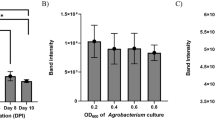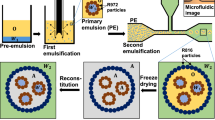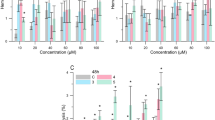Abstract
HUMAN serum albumin (HSA) is an antigen frequently used for the examination of the synthesis of antibody in various species. The techniques usually utilized are variants of either precipitin or haemagglutinating methods. Although these procedures are extremely sensitive, both suffer from the disadvantage of requiring a time-interval between the addition of reagents and final reading of the results. The haemagglutinating techniques, furthermore, require absorption, frequently multiple times, of the sera with the red cells which are used in the testing method. The following technique, a slight modification of a method described1, has proved to be reproducible, rapid, and to have the sensitivity of tanned red cell haemagglutination. Ten ml. of bentonite stock solution prepared according to the method of Bozicevich et al.1 is centrifuged at 1,800 r.p.m. for 15 min. The pellet is re-suspended in 1 ml. of distilled water and an equal volume of a 1 per cent saline solution of human serum albumin is then added. The mixture is shaken gently and permitted to incubate at room temperature for 15 min. One ml. of 0.1 per cent aqueous methylene blue and 15 ml. of distilled water is added, the suspension shaken, and after 10 min recentrifuged for 10 min. The pellet is re-suspended and washed twice in 10 ml. of distilled water. The final suspension is made up with 5 ml. with distilled water. A suspension so prepared and stored at 4° C is shaken gently before use. The flocculating characteristics are retained for periods of two weeks with no change in titre.
Similar content being viewed by others
Article PDF
References
Bozicevich, J., Bunim, J. J., Freund, J., and Ward, S. B., Proc. Soc. Exp. Biol. and Med., 97, 180 (1958).
Sever, J. L., J. Immunol., 88, 320 (1962).
Author information
Authors and Affiliations
Rights and permissions
About this article
Cite this article
TOBIN, M. Rapid Detection and Titration of Antihuman Serum Albumin Antibody. Nature 208, 1338 (1965). https://doi.org/10.1038/2081338a0
Published:
Issue date:
DOI: https://doi.org/10.1038/2081338a0



